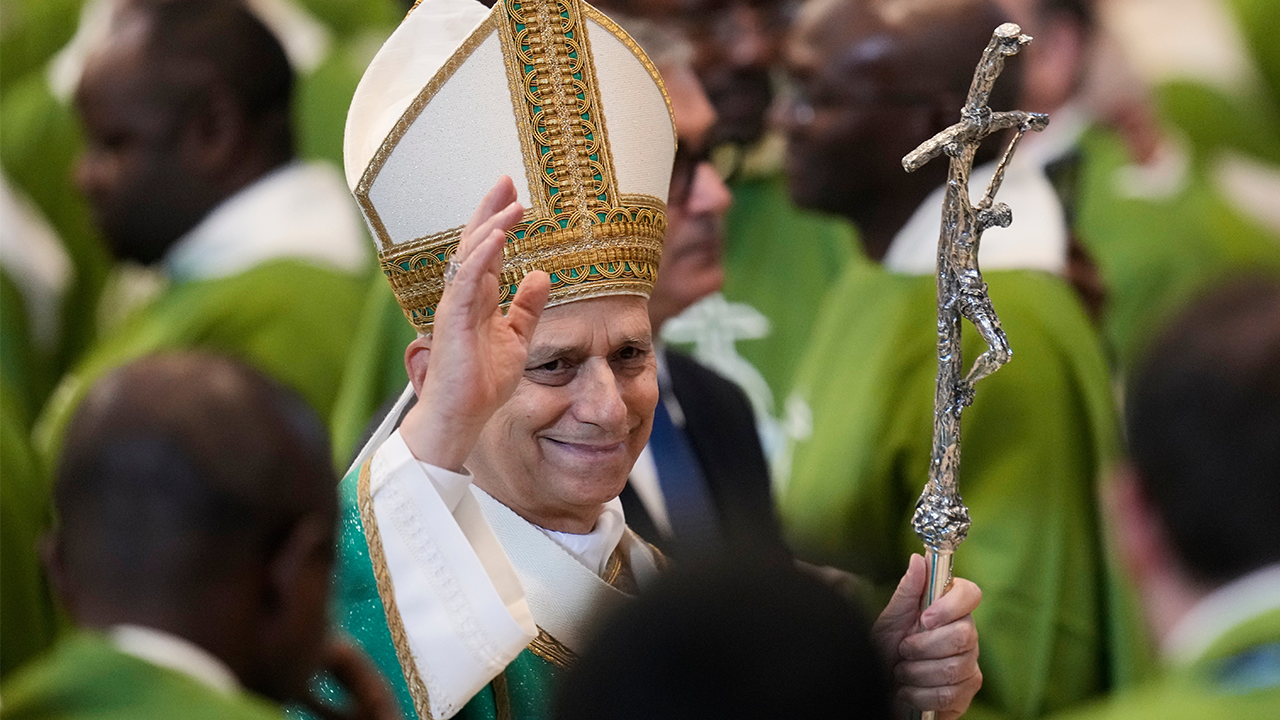Senate Majority Leader John Thune is warning Democrats will suffer the blame if the government shuts down later this year.
Thune is up against a September 30 deadline to fund the government for the new fiscal year and will need buy-in from Democrats to keep government operations running due to the Senate’s 60-vote threshold. The majority leader is hopeful that Senate Democratic Leader Chuck Schumer will supply the requisite votes from his caucus, but Thune is also prepared to win the government funding fight in the eyes of voters if Schumer decides to filibuster his way into a partial shutdown. (RELATED: Chuck Schumer Lays Groundwork For Government Shutdown)
“I think what we have to do is prove, in a Schumer shutdown scenario, that we have done everything we can to fund the government,” Thune told the Daily Caller News Foundation in an interview in his office Wednesday. “If you have the White House and the House on board with a funding resolution — and Senate Republicans — and the only thing standing between us and a government shutdown is the Senate Democrats, that I think puts them in a position where it’s very, very hard for them to defend.”
Though the top Senate Democrat has stopped short of endorsing a shutdown publicly, he could be itching for a fight with Republicans this fall.
Schumer took a beating from the left flank of his party in March following his decision to back a GOP spending bill and avert a partial shutdown. The vote, seen as a missed opportunity to challenge Republicans by many in his party, upended the lead Democrat’s previously scheduled book tour and fueled scathing criticism from senior members of his party and rumblings of a primary challenge from the left.
“The pressure is going to be enormous from the left wing of the party,” Thune added on the Ruthless podcast Thursday, referring to the political incentives Schumer may face to endorse a partial shutdown. “And increasingly, you’re seeing the tail wagging the dog in the Senate. So, you know, it’s Elizabeth Warren, it’s Bernie Sanders, it’s Cory Booker, Chris Murphy, kind of the left of the left in the Senate.”
Thune, however, is betting that Democrats will come to the conclusion that whatever favor they stand to gain with their party’s far-left faction from forcing a partial shutdown, the political fallout from a lapse in government funding will be far greater.
“They may relish the specter of that,” Thune told the DCNF, referring to a Schumer shutdown scenario. “But I think it’s pretty hard to explain [to voters] if you’re the last impediment to getting the government funded.”
Senate Democrats, some of whom are sweating their standing with the party’s base voters, have argued that the caucus should play hardball rather than work together with Republicans to fund the government.
“Frankly, a lot of our approval rating problems are from Democrats dissatisfied with our level of fight,” Democratic Rhode Island Sen. Sheldon Whitehouse, another left-leaning Democrat, told the Hill, referring to a recent nationwide poll that measured the party’s approval rating at 40%. “I think that’s probably because we have not been showing the fight they expect.”
Congressional Democrats’ favorability ratings are even worse. Just 27% of registered voters approve of Democratic lawmakers’ job performance, according to a July Marist/NPR/PBS News poll.
Senate Democrats have also threatened to go scorched earth against Republicans following the successful passage of a rescissions request from the White House to slash $9 billion in funding for public broadcasting and foreign aid. The measure’s proponents mocked Democratic lawmakers for crying foul over reducing the federal government’s roughly $7 trillion budget by just 0.1%.
When Democrats caught wind of another potential White House request to rescind more money in previously appropriated funding, some members of the caucus suggested they would have no choice but to shut down the government in protest.
“If the administration is determined to blow up appropriations and force us into a government shutdown, they ought to just tell us,” Democratic Delaware Sen. Chris Coons, told the Washington Post.
Not every Senate Democrat will be on board with filibustering appropriations bills, threatening to exacerbate pre-existing fissures within the conference.
Democratic Pennsylvania Sen. John Fetterman has repeatedly said that he would never vote to shut down the government — and criticized his colleagues’ previous saber-rattling as “total theater.”
WASHINGTON, DC – JULY 22: Senate Minority Leader Chuck Schumer (D-NY) and House Minority Leader Hakeem Jeffries (D-NY) speak to reporters alongside other House and Senate Appropriation Democratic committee members in the Ohio Clock Corridor of the U.S. Capitol Building on July 22, 2025 in Washington, DC. (Photo by Anna Moneymaker/Getty Images)
This appropriations cycle is notable because Thune is following through on his pledge to return the upper chamber to “regular order” — a process in which appropriations bills are marked up in committee and advanced to the floor in a manner that allows for amendments and debate.
Thune’s approach is a sharp break from the Senate under Schumer’s leadership, which did not bring a single appropriations bill to the floor in 2024 despite 11 out of 12 bipartisan appropriations measures passing out of committee.
“We are all about moving forward with regular order,” Republican Montana Sen. Steve Daines told the DCNF. “It was Schumer that was obstructing last time. And if things shut down, he’ll own it.”
Though Thune is intending for the Senate to pass all 12 appropriations bills, he hinted that a stopgap spending measure could be necessary to cover the rest of government funding.
“I think there’s a real value to doing this the old fashioned way,” Thune told the DCNF. “But at some point we’re going to have to fund the government.”
While Schumer strategizes over how to unite his fractious conference heading into the government funding fight, Republicans are wasting little time amplifying their “Schumer Shutdown” message.
“The issue is — does Chuck Schumer want to shut down the government over his hatred toward the president, because that’s really what it comes down to,” Republican Oklahoma Sen. Markwayne Mullin told the DCNF.
“They’ll have to [take the blame] because we can’t do it alone,” Mullin continued. We only have 53 [votes]. It takes 60. And so if they don’t provide the votes, there is nothing else we can do.”
Some GOP senators have predicted that despite Democrats’ shutdown threats, Schumer will ultimately put up the votes for passage.
“We’ll try to get past this,” Republican South Dakota Sen. Mike Rounds told the DCNF. “They’ll [Senate Democrats] act out for a while, and we expect them to. But at some stage of the game, we’ll try to get together.”
“It’s better for them to work with us to find a coordinated path forward, rather than be caught in a position where there’s a continuing resolution which does not work in their favor,” Rounds added.
Andi Shae Napier contributed to this report
All content created by the Daily Caller News Foundation, an independent and nonpartisan newswire service, is available without charge to any legitimate news publisher that can provide a large audience. All republished articles must include our logo, our reporter’s byline and their DCNF affiliation. For any questions about our guidelines or partnering with us, please contact [email protected].
Read the full article here







![Trump Promises Lower Prices While Taking Aim at Inflation at McDonald’s Event [WATCH] Trump Promises Lower Prices While Taking Aim at Inflation at McDonald’s Event [WATCH]](https://www.lifezette.com/wp-content/uploads/2025/11/2025.11.19-07.05-lifezette-691d6c337059f.jpg)



![NYPD Officer Shot in the Face, Returns Fire During Early Morning Gunfight in Brooklyn [WATCH] NYPD Officer Shot in the Face, Returns Fire During Early Morning Gunfight in Brooklyn [WATCH]](https://www.lifezette.com/wp-content/uploads/2025/11/2025.11.18-08.42-lifezette-691c3189a6bc5.jpg)